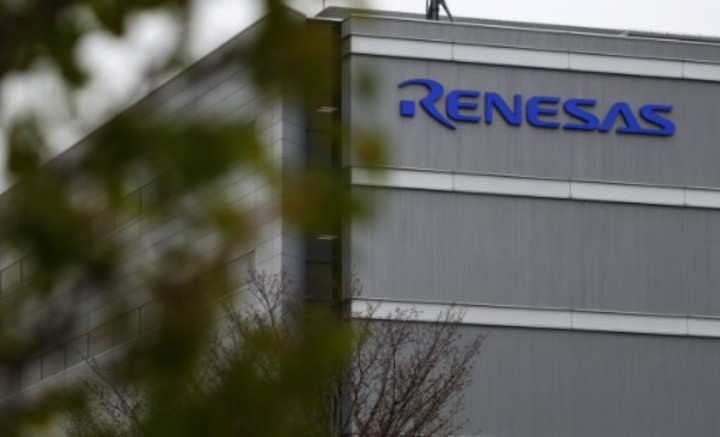New Delhi (15/07 – 50.00) High-tech collaboration between Japan and India has taken another step forward with the announcement of a “strategic partnership” between Renesas Electronics and Tata Group companies Tata Motors and Tejas Networks on June 29. The agreement aims to promote innovation in electronic systems for the Indian and global markets.
Renesas is a major Japanese producer of semiconductor products for automotive, industrial, infrastructure, IoT (internet of things) and other applications. It is a world leader in micro-controllers for the auto industry. It also possesses analog, power management, radio frequency, SoC (system-on-chip) and other semiconductor technologies.
Tata Motors is the largest motor vehicle company in India, producing passenger cars, SUVs, buses, trucks and military vehicles. It owns Jaguar Land Rover and has a joint venture with Stellantis (the combination of Fiat Chrysler and PSA formed in 2021).
Tata Motors has manufacturing and assembly operations in India, Sri Lanka, Bangladesh, Thailand, Malaysia, Vietnam, Malaysia, South Korea, the UK, Spain, Tunisia, Nigeria, Ethiopia, South Africa and Argentina. R&D centers are located in India, the UK, Spain and South Korea, and design centers in India, the UK and Italy. According to management, Tata vehicles are on the roads of more than 125 countries.

Tejas Networks designs, manufactures and sells fiber optic, wireless and data networking products to telecom service providers (mobile operators, internet service providers, undersea bandwidth providers), utility companies (railways, gas, oil, power transmission) and government entities (including defense) in more than 75 countries.
Tejas Networks recently acquired a majority stake in India’s Saankhya Labs, which designs wireless communications systems and related semiconductors for 5G, open radio access network (O-RAN), satellite and broadcast applications.
The partnership will focus on, but not be limited to, the auto industry. As noted in the press release:
The future of automotive systems design lies in a vehicle-centralized, zone-oriented electronic and electrical (E/E) architecture.
Renesas and TML will collaborate on developing next-generation automotive electronics to drive leadership performance and scalability for vehicles.
Renesas and Tata Motors will also explore a non-exclusive partnership on emerging technologies such as ADAS (advanced driver assistance systems).
At the same time, Renesas and Tejas Networks will work on the development and implementation of semiconductor solutions for wireless networks, including 5G and open radio access networks (O-RAN).
Renesas’ work with Tata Motors and Tejas Networks intersects in the areas of connected cars, ADAS, IoT and the application of 5G wireless technology to industry and infrastructure.
O-RAN standards allow different companies to supply different parts of a network, giving telecom service providers more flexibility and independence from large suppliers of complete systems such as Huawei, Ericsson and Nokia. It is being promoted by Japanese telecom equipment maker NEC and Japan’s wireless carrier Rakuten Mobile. [see “Japan’s Open RAN hot alternative to Huawei 5G”, Asia Times, December 22, 2020]
In addition, Renesas and Tata Consultancy Services plan to establish a Joint System Solution Development Center in Bangalore. The goal is to combine Renesas’s semiconductor expertise with Tata’s information technology and industrial experience.
That experience is very broad. The Tata Group consists of some 30 companies in what management calls “ten verticals” (economic sectors) with operations around the world. In addition to the companies already mentioned, the Group includes Tata Steel, Tata Chemicals, Tata Consumer Products, Titan (watches), Tata Capital, Tata Power (electric power generation, transmission and distribution), Tata Advanced Systems (aerospace, defense, military engineering and construction), Tata Communications, Indian Hotels and Tata Elxsi.
Tata Elxsi provides design and technology services to the automotive, transportation, communications, media and healthcare markets. Those services include electronic and mechanical design, software development, in-vehicle systems, cloud platform, validation and deployment.
Last March, Renesas and Tata Elxsi established a “Next Generation EV Innovation Center” in Bangalore to develop battery management, motor control and other electronic systems for electric vehicles. The effort is focused on light and two-wheel vehicles for India and other emerging markets.
Renesas will supply semiconductor devices, software, and expertise. Tata Elxsi will create the reference designs and provide support for customization and system integration testing.

Renesas and the Tata Group are making a meaningful contribution to “Make in India,” the national project launched by Prime Minister Narendra Modi. Make in India (in the words of the India Brand Equity Foundation, a trust established by the Ministry of Commerce and Industry) “is designed to facilitate investment, foster innovation, enhance skill development, protect intellectual property and build best in class manufacturing infrastructure in the country.”
When he introduced it in his Independence Day speech in 2014, Modi said,
“I want to tell the people of the whole world: Come, make in India. Come and manufacture in India. Go and sell in any country of the world, but manufacture here. We have skill, talent, discipline and the desire to do something.”
Make in India covers 25 sectors, including automobiles, aviation, biotechnology, chemicals, electrical machinery, electronic systems, aerospace and defense, information technology and business process management, ports and shipping, railways, roads and highways, oil and gas, thermal power, renewable energy, pharmaceuticals, food processing and healthcare.
Make in India is more comprehensive than Made in China 2025, which is aimed primarily at advanced technology. The Indian program is likely to have a longer trajectory as India continues to develop its modern economy.
And, as the international presence of the Tata Group demonstrates, it might be called Make in India, Sell to the World. Do not imagine that the global economic contest is only between the US and China. Japan and India are a formidable combination.















